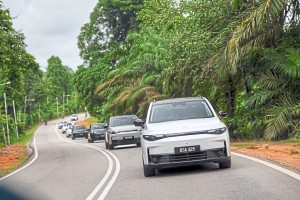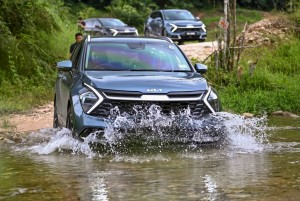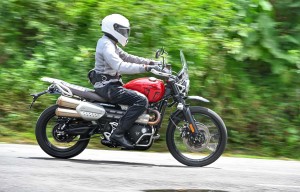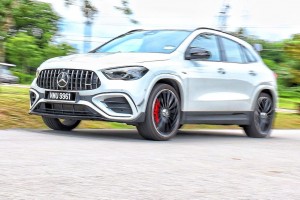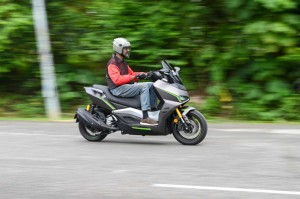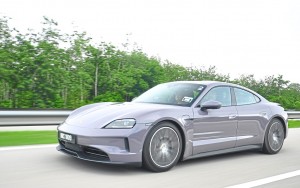BERLIN: The stereotype of an electric car driver is one who keeps to an almost laughably slow speed on the highway in order to preserve range, while fuel-belching diesel and petrol drivers whizz past at twice the speed.
This cliche might not always hold true, but range anxiety among electric drivers, often worried about not making it to the next charging station, certainly makes them more conscious of what their speed means for their battery life.
After all, advice from experts is typically to avoid flooring the accelerator, as the closer you get to your car's top speed, the faster you are draining your battery.
But isn't driving faster and charging more often perhaps altogether faster? And can you still cut time off your journey even if you have to recharge more often?
It's a theory that a group of car experts recently put to the test. Testers from the German car industry journal Auto Motor und Sport found that you can indeed cut time off longer road trips by burning through battery and recharging more frequently.
But if you want to take this route, you'll need a driving strategy that is highly dependent on your car's battery capacity and consumption levels.
The testers tried out two different driving strategies on a total of six electric cars on a route across Germany and back, from the western city of Stuttgart to the eastern city of Dresden — a distance of 506km.

On one route, drivers limited themselves to a maximum of 120kph (even on Germany's famous no-limits highways). On the other, drivers put the pedal to the metal and aimed for speeds between 140kph and 170kph, depending on the engine power.
Testers found there are electric cars with such low consumption levels (or such large batteries) that need the same amount of charging stops no matter what speed you drive.
However, in principle, the testers say that if your electric car has a more limited range or higher consumption levels, you are better off keeping to a slower speed if you want to charge less often.
Then again, if you are planning a half-way pit stop anyway, then you'll save time on your total journey by driving faster and using up more battery - even if it means waiting a little longer when recharging.
Another finding from testers: If you plan on lots of charging stops, you do run the risk of charging stations being occupied or not working at all, as was the case several times during the 12 test drives in Germany.
Indeed in countries all over the world, car drivers with "range anxiety" have been sceptical of switching to electric due to this very fear of crowded or non-existant charging points.
In practice, if you plan on driving at top speeds in your electric, it helps to know if the charging infrastructure on your route is reliable.

